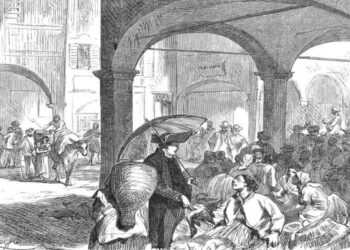George Walker Bush was the 43rd President that served the United States of America. He is the oldest son of Barbara Pierce and George Herbert Walker Bush. Meanwhile, his father was the 41st President of the United States of America. Thus, one can refer to him as George Bush Jr.
Back to the question was George W. Bush a good President?
Before becoming President, George Bush Jr. served as the governor of Texas between 1995 and 2000. He is of the Republican Party and served as President of the United States from 20th January 2001 to 20th January 2009. However, the question is, while his tenure lasted, was George W. Bush a good President? George Bush had one of the lowest ratings for a President; thus, many did not consider him to be a good President.
Read on for more about George Bush!
The Life Of George Bush Jr
His birth date is 6th July 1946, in New Haven, Connecticut, USA. He had Bush 43 as a nickname to identify and differentiate him from his father George H W Bush, who was the 41st POTUS, that is, President of the United States. He married his wife, Laura, in 1977 and they have two children together, Jenna and Barbara. He named his daughter after his mother, Barbara Pierce.
George Bush attended Yale University, New Haven, Connecticut. He obtained a Bachelor of Arts degree upon graduation in 1968, and he later went on to receive a Masters of Business Administration from Harvard University, Cambridge, Massachusetts.
George Bush is a businessman and politician, with experience in the oil industry where he worked after graduation from Harvard University in 1975. After his marriage to Laura, Bush went on to become a co-owner of the Texas Rangers Baseball team.
His political career
George Bush hails from a lineage of politicians. His grandfather Prescott Bush was a United States Senator and his father George H W Bush, served as the Vice President under President Ronald Reagan before going ahead to become the 41st President of the US.
A year after getting married to Laura Welch, George Bush ventured into politics. His first attempt at running for a political office was unsuccessful. A seat in the United States House of Representatives was the first public office he ran for, but he did not win. With a desire to represent Texas’s 19th congressional district, he ran for a seat in the House of Representatives but lost to Kent Hance.
He lost by almost an 8% margin of the votes cast during the election. There are reports that the reason he lost the election was due to the “estranged from rural Texans” campaign his opponent Kent Hance was carrying out against George Bush. Kent Hance accused Bush of alienating himself from rural Texans, and the argument was a significant vote swinger in the elections.
However, in the 1994 gubernatorial elections in Texas, he contested and defeated Ann Richards to be the 46th governor of Texas. He served just one term as the governor of Texas and went straight to becoming the 43rd President of the United States, taking over office from President Bill Clinton.
His first experience with the presidency began shortly after the failed run for a seat in the House of Representatives, George Bush moved to Washington, DC with his family. In Washington, Bush worked as a campaign advisor in the US presidential campaign of his father George H W Bush. He served as a media liaison and campaign advisor in his father’s first presidential election and also his second run for re-election.
George Bush Jr. is the second person in the history of the US to have served as President after their fathers had previously occupied the office of the presidency. The first in this father-son presidency history is John Quincy Adams.
The election that brought George Bush into office was a tough one and a bit controversial. George Bush’s opponent was Al Gore, Bill Clinton’s assistant and the Vice President of the United States at that time.
The vote margin between both Al Gore and George Bush in the presidential elections held in the year 2000 was very close, and there was a Supreme Court order that stopped the recounting of votes in the state of Florida. Due to this, George Bush managed to become the elected President of the United States despite amassing fewer popular votes than his opponent Al Gore.
Presidential campaigns
Towards the end of the spring season in 1999, George Bush announced that he was going to run for the office of the President in the coming elections of the year 2000. He was the serving Governor of Texas when he made this announcement.
His primary challenger for the Republican Party presidential ticket was John McCain, but Bush 43 secured the party’s blessings after a series of caucus deliberations, primaries, and the party’s convention.
He based his first presidential bid campaign on significant issues like the insufficient support that minorities in the US receive, the reduction of taxes, making improvements in the educational sector, expanding the size of the US military, and restoring honor and integrity to the White House. George Bush was a vocal critic of the taxation and gun control policies of ruling Democratic Vice President Al Gore. Al Gore was Bush’s opponent during the 2000 election.
Bush received five Electoral College votes more than Al Gore but had a lower nationwide vote. There were controversies over the elections in the State of Florida, which caused several recounts of the votes cast in the state. Eventually, a ruling of the Supreme Court of the United States stopped the recount and swung the election in favor of George Bush. He was sworn in as President some weeks later.
The 2004 general elections witnessed Bush’s attempt to run for President for a second time. He had massive support from the ranks and file within the Republican Party, so securing the party’s presidential ticket was pretty a walk in the park. Ken Mehlman was the campaign manager at the time.
The issues, which Bush’s 2004 presidential campaign centered on, included the US Patriot Act, support for a constitutional amendment to prohibit same-sex marriage and abortion, improving social security, reforming carbon emission control laws, and the creation of immigrants’ guest worker program. The primary campaign conversation was the war in Afghanistan and Iraq.
George Bush went on to win the majority of the electoral votes and the popular votes in the elections. He returned as President for a second term in office, defeating his opponent John Kerry with a comfortable percent margin.
George Bush’s Presidential Tenure
Hardly one year into his first term as President in September of 2011, the US was hit by the 9/11 terrorist attack that triggered a significant change in the original policies George Bush had proposed during his campaign. Here are some of the notable events during the Bush presidency.
Economy
George Bush took over office when America was experiencing a recession, and the 9/11 attacks further worsened the recession. Over the eight years, period government expenses doubled, while revenue recorded a marginal increase. Bush initiated the most significant tax cut program in the history of the US; he argued that the surplus funds belong to the taxpayers and not the government.
Gross Domestic Product yearly average increase was 2.125%, throughout his tenure, national debt and budget deficit more than quadrupled. All these pointed to increased expenses for national security and the tax cut program. The unemployment rate of his second term was 0.3% higher.
There was a percent increase in the poverty rate as average household income dropped. Towards the end of Bush’s second term in office, the country experienced a long period of post World War II recession, leading to massive job cuts.
Education
Bush increased funding for the National Institute of Health and the National Science Foundation. In 2002, he signed the No Child Left Behind Act into law. The Act aimed at leveling the educational service options for all students, and increasing funding of low-income schools by the Federal Government. The new law led to better student performance across the country.
Foreign Policy
Bush’s foreign policy campaign consisted of increasing and strengthening relations in economy and politics with European and South American nations. The war against terrorism initiative was notably a result of the 9/11 attack. There was a coalition of world powers that led to the invasion of Afghanistan and the ousting of Saddam Hussein in Iraq.
George Bush was the subject of criticism, both nationally and internationally for his preemptive and preventive war doctrine. He also enacted a presidential surveillance program that empowered the National Security Agency to monitor the activities of suspected terrorists within and outside the United States.
Social Security
In 2003, the Medicare Act of 2003, which was an improvement to the Medicare Program, got enacted. The Medicare Act of 2003 aimed at assisting citizens in the payment for medical care and prescription drugs.
Was George Bush A Good President?
George Bush’s approval ratings in the US kept dwindling throughout his tenure as President of the US He finished from office with the lowest approval rating any of his predecessors had round-up from office. Judging his performance as President based on approval ratings is not good enough, as there might have been a combination of different factors involved in those ratings.
On the International scene, there were a plethora of reviews and polls carried out about Bush’s popularity and performance. The majority of the polls had unfavorable reviews of President Bush, though there were strong supports for him, like in the case of Albania, where people set up a statue of him.
Conclusion
Being good is, however, relative. What someone considers as good may be bad for another person. President George Walker Bush had several laudable achievements that the people praised him for; however, some made him the subject of criticism. Thus, one can answer the question, was George W. Bush, a good President, in light of the fact that he is one of the poorly rated Presidents America ever had.
You May Like These Articles As Well:
How Much Do Fox News Contributors Make?







